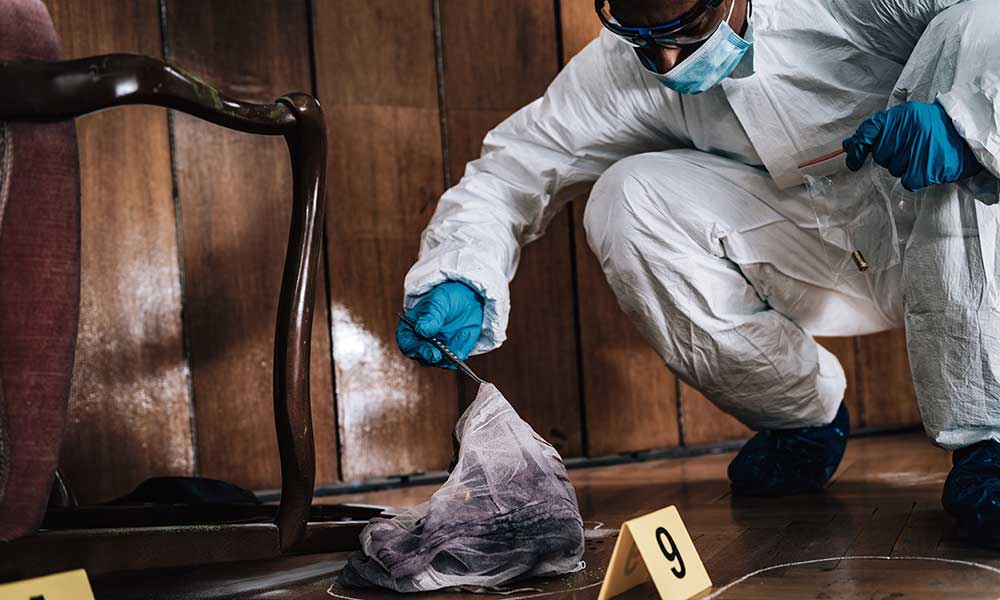The Good Faith Exception and its Limitations
Getting evidence suppressed and charges dismissed is something that only the most successful and persuasive criminal defense attorneys can accomplish.

The Exclusionary Rule
The Exclusionary Rule is a judge-made rule that states that when law enforcement obtains evidence by violating a suspect’s constitutional rights, the prosecutor cannot use it against that suspect in court. The exclusionary rule was initially born in the United States Supreme Court. All states have since adopted it in one form or another because all states must follow the United States Supreme Court’s constitutional holdings. A state court may provide more constitutional protection than the United States Supreme Court, but no state may provide less protection. Any evidence obtained through a constitutional violation is potentially and likely to be suppressed. Any evidence derived from a violation of constitutional rights has become known as “the fruit of the poisonous tree.” The violation itself is the poisonous tree, and the judge must suppress the evidence. The government may ask the court not to exclude illegally seized evidence because of a search warrant exception, such as the “Good Faith Exception.”
If the police or a prosecutor has violated your constitutional rights, your criminal defense attorney needs to have the experience to successfully challenge the admission of such tainted evidence, get a dismissal of all charges, and have the case thrown out of court. If an attorney fails to challenge the search, is not astute enough to spot a constitutional violation, or is not strong enough to fight for suppression, the evidence can and will come in. A judge will not step in and tell a defendant they should challenge evidence, and neither will the prosecutor.
Purpose of the Exclusionary Rule
The purpose of keeping unconstitutionally obtained evidence out of court is to deter unconstitutional police conduct. If police know that courts will exclude evidence if they violate rights, they will probably try not to violate rights. At least, that’s the idea. The idea is good and has significantly affected criminal cases in the United States. This being said, police are not perfect, and there are bad apples in every bunch. Many police officers can and will violate a suspect’s right, believing that the ends justify the means.

Good Faith Exception to the Exclusionary Rule
As with almost everything in life, things are not usually black and white. Most things exist in a gray area. Therefore, exceptions to the exclusionary rule have developed. One primary exception to the exclusionary rule is the so-called “good faith exception.” The good-faith exception exists where police or any law enforcement personnel rely, in objective actual good faith, upon a search warrant issued by a detached and neutral magistrate or judge, which was not supported by probable cause. Evidence can come in despite a defect in a search warrant that excluding evidence when police were mistaken but “behaved honorably” will not serve a deterrent effect on bad police conduct. Remember, deterrence is the reason for the exclusionary rule. It would be like punishing a child for eating someone else’s cookies when the child had good reason to believe they were his cookies.
The Procedure for Suppression of Evidence – Defending Against the Good Faith Exception
When an experienced, wise defense attorney spots a potential ground for dismissal based upon an illegal search, they should file a Motion to Suppress. If the motion is successful, they will request dismissal of all charges based on insufficient remaining evidence. The government will always argue the good-faith exception, but courts are arenas for the combat of ideas. A great boxer would never step into the ring, look at his opponent, and say, “Wow, I can’t beat this opponent.” They would fight with all their heart, as our attorneys do daily.

The right firm to fight for you and suppress evidence
The dedicated, experienced, and zealous defense attorneys at LEWIS & DICKSTEIN, P.L.L.C. have successfully fought to suppress tainted evidence and get charges dismissed in state and federal cases in Oakland, Macomb, Wayne, Washtenaw, and Livingston Counties and throughout Michigan. We have a well-earned reputation for providing the highest quality defense and aggressive representation, while showing empathy and care for each client.
Call us today at (248) 263-6800 for a free consultation or complete an online Request for Assistance Form. We will contact you promptly and find a way to help you.













